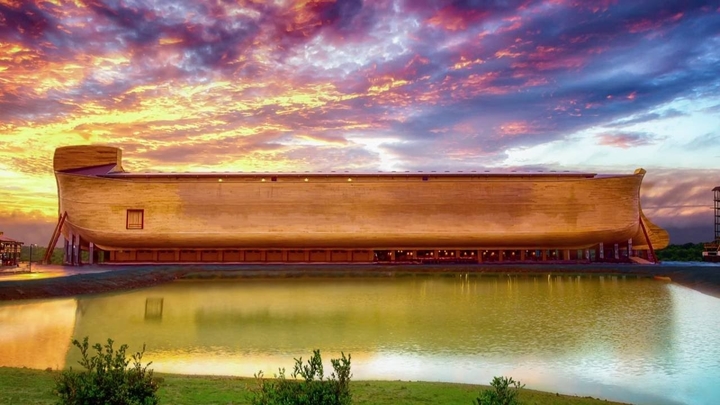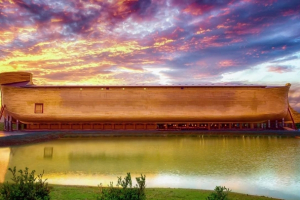Support for the "Young Earth" creationist view of the origin of humans is at an all-time low - even among Christians, according to new polling data, which found that just 38% of the American public believes God created humans in their present form at some time within the last 10,000 years.
According to a Gallup poll conducted in May, support for the creationist position has fallen significantly in recent years, with 57% of U.S. adults believing in some form of evolution -- either God-guided or not -- saying man developed over millions of years from less advanced forms of life. In 2012, 46% of U.S. adults supported creationism, according to a previous Gallup survey.
"This is the first time since 1982 -- when Gallup began asking this question using this wording -- that belief in God's direct creation of man has not been the outright most-common response," notes Gallup.
The percentage of Americans taking the strict evolution view -- no divine role -- has also grown significantly since the 1980s, from 9% to 19%. Overall, however, three-quarters of Americans believe God was involved in man's creation -- "whether that be the creationist view based on the Bible or the view that God guided the evolutionary process, outlined by scientist Charles Darwin and others", the study found.
"Since 1982, agreement with the 'secular' viewpoint, meaning humans evolved from lower life forms without any divine intervention, has doubled," it says.
Ken Ham, a prominent Young Earth Creationist and founder of Answers in Genesis, previously told The Gospel Herald confusion surrounding the origin humankind is really a battle between two religions - evolution and God's word.
"The chasm between what's obviously Christian - what the Bible actually teaches - and what culture teaches has widened," he said. "America used to be very christianized in its worldview as a culture. Now, there's a big separation."
The chasm between Christianity and culture, Ham contended, is seen particularly among the younger generation. He earlier shared with GH that biblical illiteracy "is rampant" in the United States, with surveys suggesting that as many as 40 to 50 percent of Christians refuse to take the Bible as literal in all that it presents.
"Millennials, the majority of them, don't believe the Bible as previous generations did - we're seeing a big distinction here," he said. "Two-thirds of young people are walking away from the church by the time they reach college age, with very few returning, because they haven't been taught to defend their faith. We've handed them over the secular education system to indoctrinate in atheistic philosophy. We're losing the coming generation."
Both the Ark Encounter, the life-sized Noah's Ark theme-park attraction, and the Creation Museum, put forth a "Young Earth Creationist" interpretation of Scripture in an effort to "present the truth of God's Word to the world", Ham told GH.

The Ark Encounter in Williamstown is based on the measurements in cubits found in the first few chapters of Genesis.
In an op-ed for USA Today, Tom Krattenmaker, author of Confessions of a Secular Jesus Follower, argues that continued fighting to promote creationism "is hurting religion's credibility in an age when science and technology are perceived as reliable sources of truth and positive contributors to society."
"As the poll reveals, the biggest factor in the shift is a jump in the number of Christians who are reconciling faith and evolution," he writes. "They are coming to see evolution as their God's way of creating life on Earth and continuing to shape it today."
He points out that one-time creationists are now "taking refuge" not in the "no-religion" zone but in "both/and" position, according to the Gallup poll.
"These tea leaves tell us that more people are refusing the all-or-nothing choice between faith and science and opting instead for a third way: Acceptance of the overwhelming scientific evidence for evolution while seeing a divine role in the process," he writes. "Growing public rejection of an unhelpful creationism-vs.-evolution fight that does no favors for either religion or science. As more believers are wisely accepting, you can embrace both - and both are better for it."


















